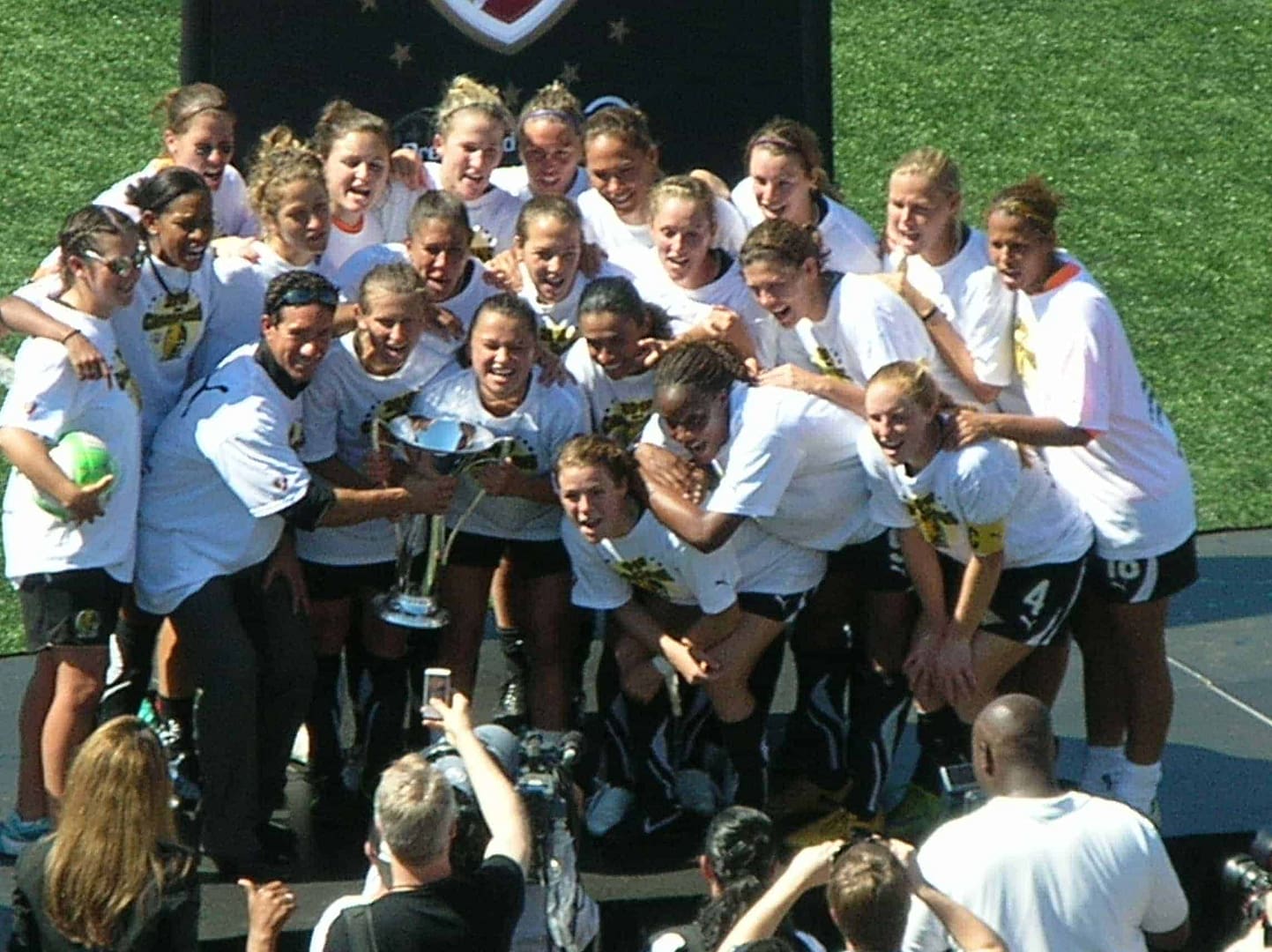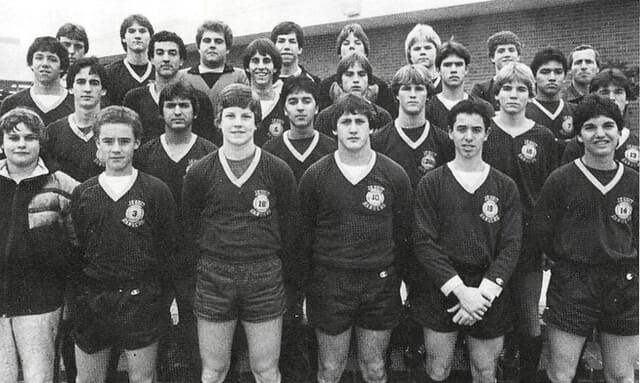There’s something magical about Jesuit soccer. It’s not just about winning matches or collecting trophies—it’s about the unity, discipline, and tradition that the program has built over decades. Ask any fan, and they’ll tell you Jesuit games feel different. The chants, the energy, and the pride run deep.
If you’ve ever stood in the stands on a cool Texas evening, surrounded by fans in blue and gold, you know the feeling. It’s the excitement before kick-off, the roar after a goal, and the sense of community that stays with you long after the final whistle. This isn’t just high school soccer—it’s a movement.
The Historic Rise of Jesuit Soccer
Jesuit soccer’s journey to greatness didn’t happen overnight. For years, the Rangers built their reputation match by match, season by season. But their defining moment came when they became the first private school in the 100-year history of the University Interscholastic League (UIL) to win a state championship.
That game, played against Houston Strake Jesuit in the Class 5A boys state final, was pure drama. Neither team could score in regulation or overtime. The Rangers, guided by their motto—“If they can’t score, they can’t win”—held firm until the shootout. With calm precision, David Reilly and Hansel Reyes netted their penalties, while goalkeeper Ryan Aubrey made the crucial saves. Aubrey’s heroics earned him the MVP award and cemented his place in Jesuit history.
This victory wasn’t just a championship win; it was a cultural shift. Jesuit proved that a private school could not only compete in UIL but dominate it. They entered the tournament ranked No. 1 nationally, and this result only strengthened their case for a national title.
Key Moments and Championship Wins
Jesuit’s history is dotted with big wins and unforgettable seasons. That 1-0 shootout victory in the state final is often seen as the peak, but it’s only one chapter in a much larger story. Over the years, they’ve defeated powerhouse public schools, survived nail-biting overtime thrillers, and showcased a level of consistency few programs can match.
Championship runs have often been marked by rock-solid defense and clinical finishing. In fact, their defensive strength is a point of pride. When Jesuit takes the field, opponents know they’ll be up against a wall of discipline and determination. It’s that same grit that carried them through the toughest playoff brackets, even when facing schools with bigger rosters and deeper benches.
Jesuit’s Playing Style and Strategy
If you watch Jesuit soccer closely, you’ll notice their style is methodical but not predictable. They’re structured in defense, with lines as organized as a hawks depth chart, making it incredibly hard for opponents to break through. But once they win possession, they switch gears quickly, launching creative, fast-paced attacks.
Preparation is everything. The coaching staff spends hours analyzing opponents—much like following the Santos Laguna schedule to anticipate styles of play. Practices are intense but purposeful, focusing on game scenarios, set pieces, and transition play. This balance of tactical discipline and on-the-fly adaptability is what keeps them at the top year after year.
The Role of Community and Culture
Jesuit soccer thrives because it’s not just about the players—it’s about everyone connected to the program. Alumni return for games, parents volunteer for team events, and students pack the stands, creating an atmosphere that’s electric from start to finish.
It’s common for fans to greet one another with a warm buenos dias bendiciones before a match, a small but meaningful gesture that blends sport with community spirit. The team embodies Jesuit values of respect, integrity, and service. Wins are celebrated, but sportsmanship is valued just as much.
Beyond High School – Jesuit Players on Bigger Stages
One of the most impressive aspects of Jesuit soccer is how well it prepares athletes for life beyond high school. Many graduates have gone on to play for top college programs, and some have even pursued professional careers.
Their journey often mirrors the path of players like Bryan Reyna, who rose from youth leagues to compete at higher levels. Jesuit players have also been part of elite club teams, such as the Solar Chelsea ’95 squad that won the U-17 Region III US Youth Soccer Championship. That team battled through a “group of death” and defeated defending national champions, with goalkeeper Dante DiCiolli earning the Golden Gloves award.
Training, Discipline, and Mindset
Jesuit’s success isn’t built on talent alone—it’s forged in training sessions where every drill has a purpose. Players are expected to bring focus, commitment, and a willingness to learn. The program emphasizes physical conditioning, technical skills, and mental toughness.
The coaches push athletes to their limits while keeping the environment supportive. Mistakes are treated as learning moments, and leadership is developed on and off the field. By the time players graduate, they’re not just better athletes—they’re more resilient people.
Rivalries That Define the Season
Rivalry matches are the heartbeat of any great sports program, and Jesuit soccer has its share. Games against Strake Jesuit are always intense, drawing massive crowds and creating moments fans talk about for years. These matches are more than just soccer—they’re battles of pride, tradition, and bragging rights.
Other rivalries with top Texas programs keep the team sharp, forcing them to adapt and evolve each season. The anticipation, the buildup, and the emotion of these games bring out the best in players and fans alike.
The Academic-Athletic Balance
What makes Jesuit truly stand out is its commitment to academics. Players are reminded that they’re student-athletes, with the “student” part coming first. Time management becomes a vital skill, as they juggle practices, games, travel, and demanding coursework.
This balance shapes them for success in college and beyond. It’s no coincidence that Jesuit alumni excel not only in sports but also in their careers and communities.
What Makes Jesuit Soccer Different
Plenty of teams have talent, but Jesuit’s advantage is its culture. The program is built on a foundation of trust between coaches and players. Everyone knows their role, and no one plays for individual glory—it’s all about the team.
They’ve created a system where success isn’t measured by one season’s record but by the legacy left behind. Every graduating class leaves the program stronger than it found it.

Conclusion – Jesuit Soccer’s Lasting Impact
Jesuit soccer is more than just a high school sports team. It’s a symbol of perseverance, unity, and excellence. From their historic state championship to their ongoing success in tournaments and leagues, they’ve proven time and again that preparation, discipline, and heart are a winning combination.
And for players, coaches, or fans who want to track their own soccer journey, there’s Goalnyx—a powerful platform that helps you analyze performance, manage schedules, and plan your path to success. Just like Jesuit, the right tools can turn ambition into achievement.
FAQs
Q1: When did Jesuit soccer win its first state championship?
A: In 2010, they became the first private school to win a UIL state title, defeating Houston Strake Jesuit 1-0 in a shootout.
Q2: Who are some notable Jesuit soccer players?
A: David Reilly, Hansel Reyes, and Ryan Aubrey are celebrated for their state championship performances, alongside club-level standouts like Dante DiCiolli.
Q3: What makes Jesuit’s playing style unique?
A: They blend disciplined defense with quick, creative attacks, adapting their tactics to suit each opponent.
Q4: Does Jesuit soccer have connections to club-level success?
A: Yes, many players compete for elite clubs like Solar Chelsea ’95, which has won regional and national championships.
Q5: How can Goalnyx help soccer players?
A: Goalnyx tracks stats, analyzes games, and organizes schedules, helping players improve their performance and strategy.






